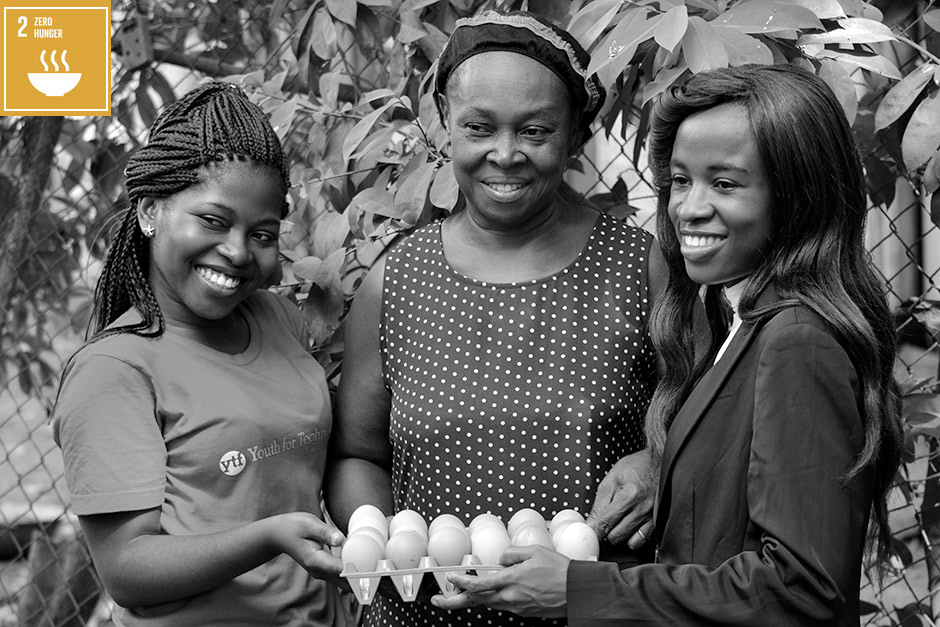

(Editor’s note: This post is part of a series covering YTF’s work with the United Nation’s Sustainable Development Goals. See more of the series here.)
Women agricultural producers and farmers make up over 50% or more in Sub-Saharan Africa.[1] Yet only 15% of women involved in agriculture own or rent land; most frequently the land available to women is of poorer quality or smaller plots of land.[2]
Studies show that women are just as efficient as men and would achieve the same yields if they had equal access to productive resources. However, women have more restricted access than men to productive resources and opportunities—including land, livestock, inputs, education, extension and research services, and financial services.
Closing the gender gap gives an important boost to agricultural productivity and output, and in bringing agricultural yields similar to those of men, women alone can increase agricultural output to reduce world undernourishment by up to 17%.[3] Greater productivity resources for women farmers result in significant decrease in hours spent on such time-intensive activities as fetching water (e.g., 50-90% savings in time) and increased education for girls (20% increase in girl family members attending school).[4]
Agricultural extension and advisory services are critical for this challenge, but far too many farmers, and especially women, do not have regular access to such service.
Agric-P.O.W.E.R. is a scalable platform that closes the critical information gap facing rural women farmers. The platform started in Imo State, in the Niger Delta region of Nigeria. Agric-P.O.W.E.R. encourages a more participatory approach in improved agriculture practices that ensures more equitable access to extension agents and productive resources by rural women farmers.
